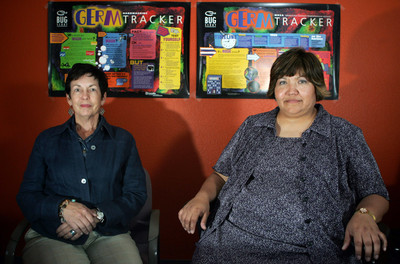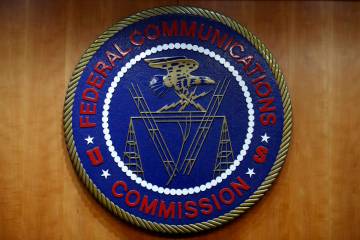Licensure bureau filling slots
When the hepatitis C outbreak at a Las Vegas endoscopy center was announced, fingers pointed in all directions, including at the Nevada Bureau of Licensure and Certification.
The regulatory agency came under fire because it did not close the Endoscopy Center of Southern Nevada in January after learning six people had contracted hepatitis C as a result of unsafe injection practices there. The clinic was allowed to stay open until March when the city of Las Vegas revoked its business license.
Though within its rights in not closing the facility, the agency has stepped up efforts to prevent such future adverse health events. In recent months the bureau, tasked with inspecting and regulating certain medical care facilities, has filled about a dozen health surveyor vacancies.
It has also added an infection control specialist, Kim Neiman, said Marla McDade Williams, the bureau's chief.
Williams took over for Lisa Jones, who resigned earlier this year. She said the agency is refocused and more emphasis is being placed on training health surveyors to identify "consistent issues" that spring up during inspections.
"We're really trying to assess our current process,'' Williams said. "We're going to do more comprehensive assessments -- identify where we might need to send Kim. For the (medical) facilities, in general, our goal is to help them understand ways to have better outcomes for their patients. That's what we're striving for.''
In March, the bureau had 14 vacancies out of 50 approved positions. As of July 18, there was only one vacant health facility surveyor position. Richard Whitely, administrator for the Nevada State Health Division, said the bureau expects to fill the remaining position with the next 30 days.
Some state legislators had questioned whether the vacancies led to lapses in inspecting ambulatory surgery centers.
Of the 50 ambulatory centers inspected recently by the bureau, 22 had not had a complete inspection within the six-year time frame required. Some had not been inspected for 12 years. The Endoscopy Center's 700 Shadow Lane facility had not been inspected for seven years, although the bureau did investigate a complaint there in 2004.
Federal requirements set by the U.S. Department of Medicare and Medicaid Services recommend that inspections occur every six years. Nevada lists a three-year inspection rule for ambulatory surgical centers. A bill draft proposed at a Legislative Committee on Health Care meeting Tuesday calls for annual inspections.
During legislative hearings regarding the hepatitis C outbreak, bureau officials said inspection lapses arose partially from staff shortages and the fact that other types of facilities overseen by the bureau required inspections more often. There are federal penalties for not completing those surveys in a timely fashion.
But some, like Gov. Jim Gibbons, argued that even if the positions were filled there were no guarantees health surveyors would have identified breaches in infection control.
Neiman, an infection preventionist with more than 30 years experience working for private and military health care facilities, is hoping to help do just that.
Her job is to educate surveyors and medical care facilities on how to prevent spread of infection in health care settings.
"I have seen outbreaks in different areas and in all types of health care institutions,'' she said. "My job is to educate people about what they are doing and prevent problems before they occur.''
Neiman said she is in the process of developing tools for surveyors to use as resources and references.
According to the bureau, health surveyors perform three primary functions. They conduct medicare certification surveys for skilled nursing facilities, hospitals, home health agencies, and other medical facilities, including ambulatory surgery centers and facilities that provide dialysis; they investigate complaints; and they assess a facility's policies to ensure compliance.
Williams said surveyors spend most of their time in the field and make judgment calls about whether a facility's license should be suspended, revoked, or if a ban should be placed on future admissions until the facility is able to comply health care regulations.
In 2007, an estimated 52,700 hours were expended performing surveys and answering complaints at various facilities.
"We must survey approximately 1,399 facilities statewide,'' Williams said. "It's a time-intensive process.''
The health division has taken other steps to address the issue, as well. For example, it will be working with Southern Nevada Area Health Education Centers to develop standard infection control curriculum based on CDC guidelines and provide on-site infection control and continuing education to ambulatory surgery centers.
Contact reporter Annette Wells at awells@reviewjournal.com or 702-383-0283.




























